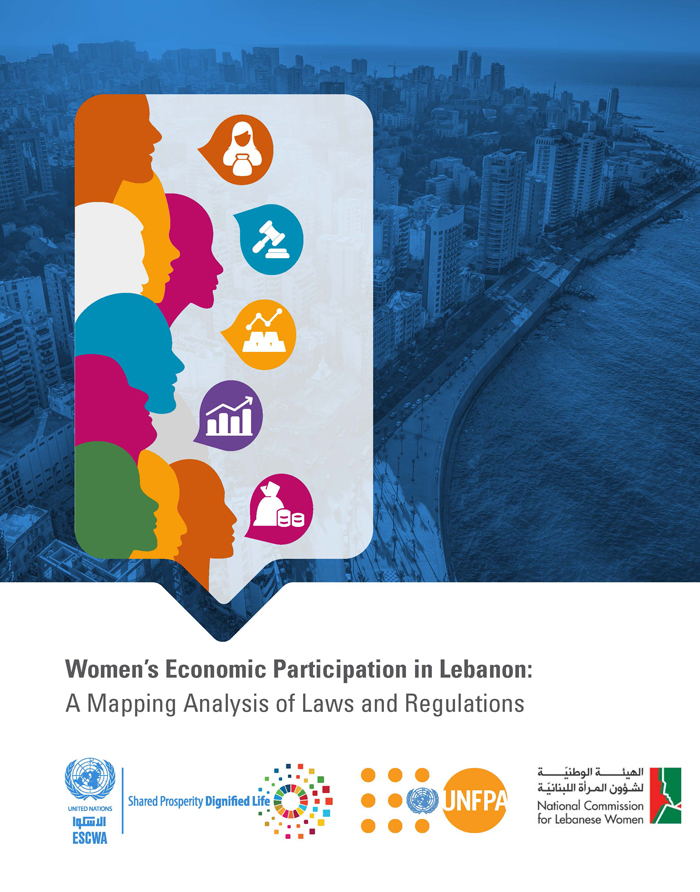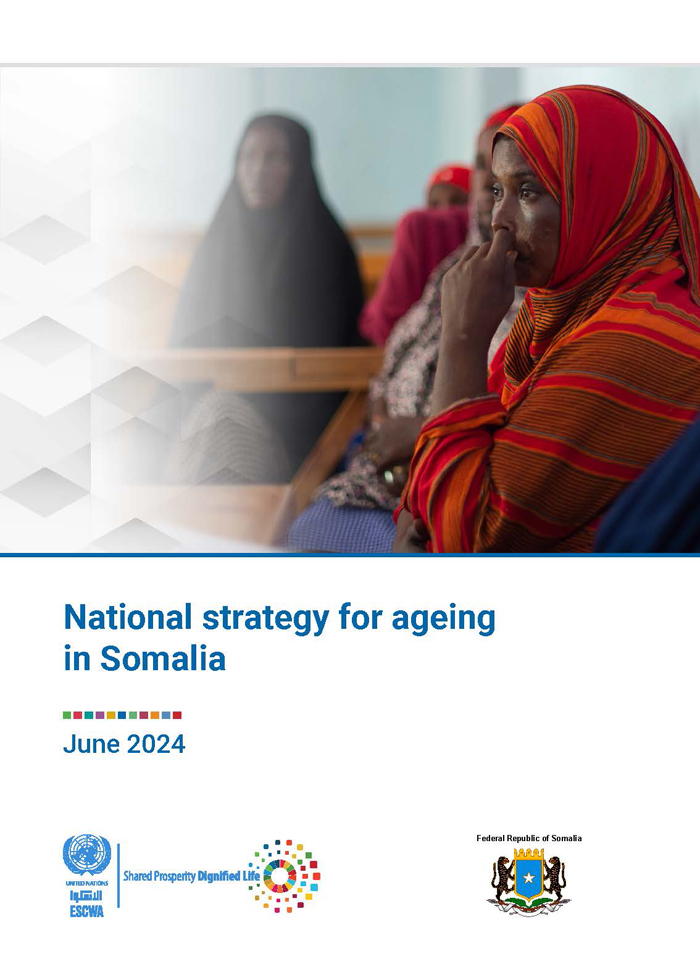
ESCWA Publication: E/ESCWA/CL2.GPID/2022/TP.27
Country: Lebanese Republic
Publication Type: Reports & studies
Cluster: Gender Justice, Population and Inclusive Development
Focus Area: Gender equality
Initiatives: Women’s economic empowerment, Women’s rights and gender mainstreaming, Gender Justice and the Law
SDGs: Agenda 2030, Goal 8: Decent Work and Economic Growth, Goal 9: Industry, Innovation and Infrastructure
Keywords: Labour, Women, Lebanon, Employment, Economic conditions, Financial crisis, Covid-19, Refugees, Domestic workers, Women with disabilities, Government policy, Rules and regulations, Sexual harassment, Scientists, Women in agriculture, Persons with disabilities, Sustainable development, Women's status, Women refugees, Women workers, Workforce
Women's economic participation in Lebanon: a mapping analysis of laws and regulations
November 2022
Women’s labour force participation in Lebanon is among the lowest in the region and the world. Lebanese women are twice as likely as men to be unemployed, work in unfavourable conditions and receive lower pay and profit. The low rates of economic engagement among women in Lebanon can be explained by incomplete and misinterpreted laws and regulations, as well as an entrenched patriarchal system. These shortcomings are further exacerbated by the country’s financial and economic crisis and compounded by the COVID-19 pandemic and the August 2020 Port of Beirut explosion.
This report presents an overview of women’s economic participation in Lebanon, including refugees, migrant domestic workers and women with disabilities. It seeks to identify and analyse legal loopholes, gaps and hurdles in existing Government policies and provides recommendations to support the active engagement of women in the economy.
Related content
Gender equality
,
Women’s labour force participation in Lebanon is among the lowest in the region and the world. Lebanese women are twice as likely as men to be unemployed, work in unfavourable conditions and receive lower pay and profit. The low rates of economic engagement among women in Lebanon can be explained by incomplete and misinterpreted laws and regulations, as well as an entrenched patriarchal system. These shortcomings are further exacerbated by the country’s financial and economic crisis and compounded by the COVID-19 pandemic and the August 2020 Port of Beirut explosion.
This report presents an overview of women’s economic participation in Lebanon, including refugees, migrant domestic workers and women with disabilities. It seeks to identify and analyse legal loopholes, gaps and hurdles in existing Government policies and provides recommendations to support the active engagement of women in the economy.



